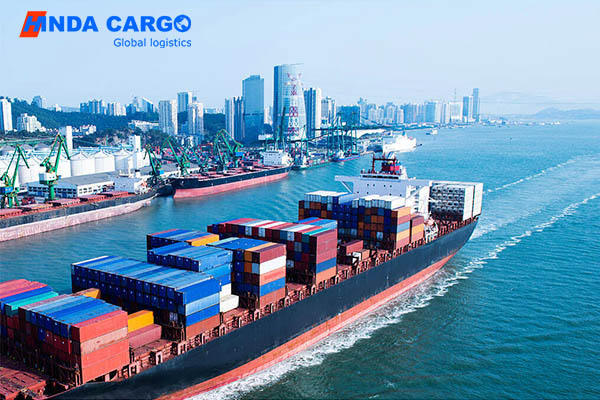How to choose the right international trade terms for me?
In today's world of rapid globalization and international trade, choosing the right international trade terms (Incoterms) is crucial to the international trade activities of enterprises. International trade terms not only regulate the responsibilities and obligations of buyers and sellers, but also directly affect the costs and risks of transportation, insurance, tariffs, etc. This article will explore in depth how to choose the right international trade terms to help enterprises avoid risks and optimize costs in international trade.

What are international trade terms?
International trade terms (Incoterms) are standardized trade terms formulated by the International Chamber of Commerce (ICC) to clarify the responsibilities, costs and risk sharing between buyers and sellers in international sales contracts. Since their first release in 1936, international trade terms have become an important tool in international trade activities. The latest version is Incoterms 2020, which was released in 2020 and contains 11 terms covering various modes of transport.
How to choose the right international trade terms for me?
Choosing the right international trade terms requires comprehensive consideration of many factors, including the nature and value of the goods, the mode of transportation, the trade environment of the destination country, the cooperative relationship between buyers and sellers, and risk management and insurance. Here are some key aspects to consider when choosing an Incoterm:
1. Nature and value of goods:
Goods of different nature and value have different requirements for transportation and risk management. High-value goods require more stringent insurance and transportation arrangements, while perishable goods require fast transportation and special handling. For example, for high-value electronic products, the CIP (Carriage and Insurance Paid To) term may be more appropriate because the seller needs to ensure insurance coverage for the goods.
2. Mode of transport:
Incoterms apply to various modes of transport, including sea, air, land and multimodal transport. The specific mode of transport needs to be considered when choosing a term. For example, the FCA (Free Carrier) term applies when the seller hands over the goods to the carrier designated by the buyer, while FOB (Free on Board) applies to sea or inland waterway transport.
3. The trade environment of the destination country:
The trade environment and regulations of different countries may affect the choice of terms. Some countries may have strict import tariffs and regulatory requirements, so it is necessary to choose terms that clearly define responsibilities and cost sharing. For example, the DDP (Delivered Duty Paid) term is applicable when the seller bears all import duties and fees, so that the buyer does not need to deal with complicated import procedures.
4. The cooperative relationship between the buyer and the seller:
The cooperative relationship and trust between the buyer and the seller are also important factors in choosing the terms. For long-term cooperation and high-trust partners, more flexible terms such as FCA or CPT (Carriage Paid To) can be selected. For first-time cooperation or low-trust partners, terms with clearer risk sharing, such as CIP or DDP, can be selected.
5. Risk management and insurance:
Risk management and insurance arrangements need to be considered when choosing terms. Some terms require the seller or buyer to bear more transportation risks, so corresponding insurance needs to be purchased. For example, the CIP term requires the seller to purchase cargo transportation insurance, while the CPT term gives the insurance responsibility to the buyer.

Selection strategy in practical application
In actual trade operations, enterprises should choose appropriate international trade terms according to specific circumstances. The following are some selection strategies in practical application:
1. Evaluate your own logistics capabilities:
Enterprises should evaluate their own logistics capabilities and experience. If the enterprise has a strong logistics management team and rich experience in international transportation, it can choose a term with higher flexibility, such as FCA or CPT. If the enterprise is inexperienced in international logistics, it can choose a term with clearer risk sharing, such as CIP or DDP.
2. Understand the needs of partners:
Enterprises should understand the needs and preferences of their partners. Through communication, clarify the other party's requirements for transportation, insurance and tariff processing, and choose appropriate terms based on the actual situation of both parties. For example, if the partner wants to reduce its own logistics management burden, it can choose DAP or DDP.
3. Consider costs and risks:
Enterprises should consider transportation costs and risk sharing comprehensively. When choosing terms, not only transportation costs should be considered, but also insurance costs and potential risk costs. For example, although the choice of CIP terms increases insurance costs, it reduces the buyer's transportation risks and helps to ensure the safety of goods.
4. Ensure that the contract terms are clear:
After selecting the terms, the enterprise should ensure that the relevant terms are clearly stated in the contract, including the place of delivery, cost sharing, risk transfer, etc. This helps to avoid subsequent disputes and ensure the smooth progress of transactions.

Conclusion
Choosing suitable international trade terms is a key link for enterprises to carry out international trade activities. By comprehensively considering factors such as the nature of the goods, the mode of transportation, the trade environment of the destination country, and the cooperative relationship between buyers and sellers, companies can find the best balance between cost and risk.




